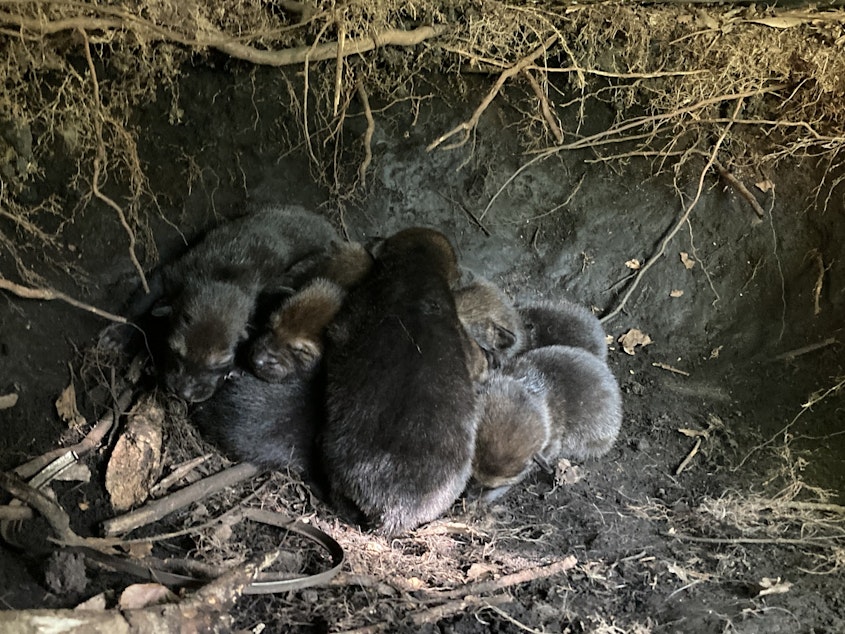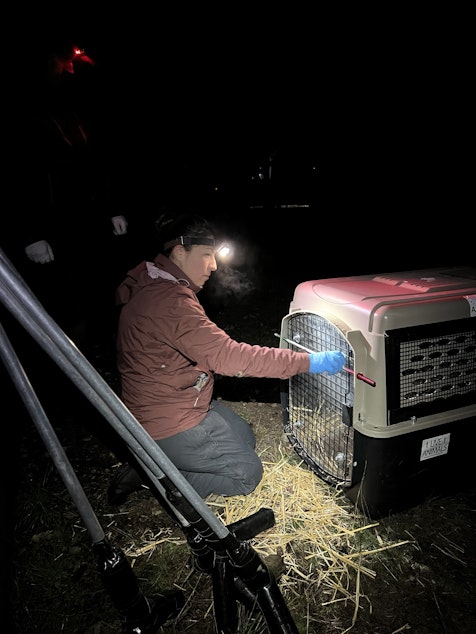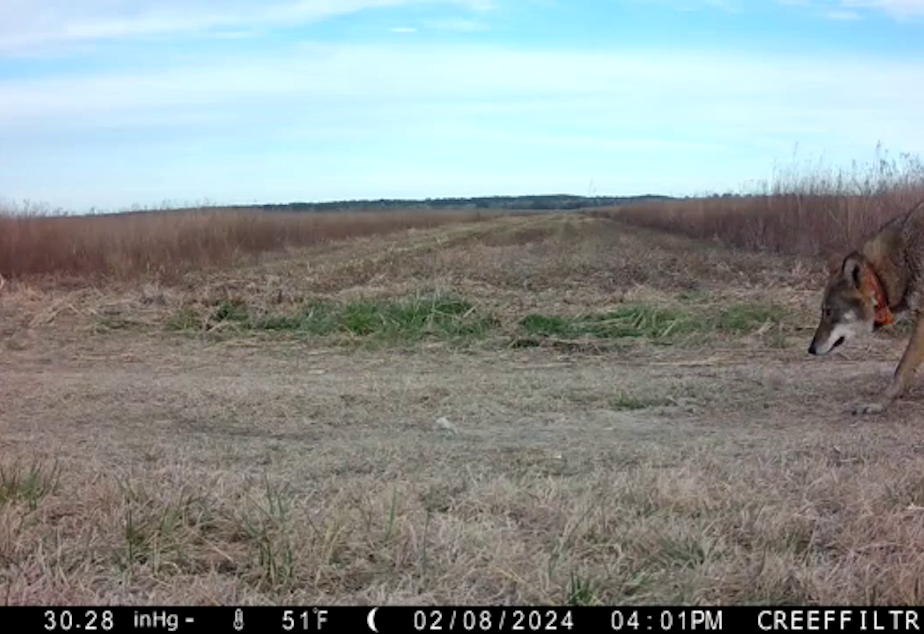Red wolf raised at Washington state sanctuary joins wild pack, sires 8 pups

An endangered American red wolf born and raised in a Washington state sanctuary and released into the wild earlier this year in North Carolina has fathered a litter of eight pups, doubling the size of his adopted pack.
The wolf, known as M2191, but nicknamed “Finch” among the staff at Wolf Haven International, is only the second red wolf released into the wild by the wolf sanctuary and education center located on 80 acres south of Olympia, Washington.
American red wolves remain one of the most endangered species in North America. The North Carolina population, which includes around 20 wolves, is the world’s only wild population.
In a statement, Wolf Haven Director Pamela Maciel Cabañas said it was especially gratifying to learn that Finch had not only successfully integrated with the North Carolina pack, but also added needed genetic diversity to help keep the species viable.

“To have any of these pups not only get a chance to live their full potential in their natural habitat, but to also potentially contribute to the growth and genetic diversity of the wild population by producing pups of their own, brings the work we do full circle,” Cabañas said.
Sponsored
Wolf Haven participates in two federal programs known as “Saving Animals From Extinction” or SAFE, one for the American red wolf and one for the Mexican wolf. The program, originally called Species Survival Plan, oversees the population management of endangered species in captivity and their conservation in the wild. Wolf Haven is a breeding facility for both programs.
The endangered wolf pups grow up in remote pens and have very little interaction with humans, which makes them ideal candidates to be released into the wild.
But increasing wolf populations, even when the species is near extinction, remains a hotly debated issue, said Wolf Haven’s Emily Evans.

“We're not just letting them out to potentially be killed by a hunter or you know, a vehicle strike,” Evans said. “So it's kind of [important to] find the balance between those two things, of making sure that it's really what's best for the people and for the animal.”
Sponsored
In the case of Finch, he was released after another male wolf in North Carolina’s Milltail pack was fatally hit by a vehicle.
Finch was transported from Wolf Haven to the Alligator River National Wildlife Refuge in eastern North Carolina last fall. He was placed in an acclimation pen in the Milltail’s territory, where he remained for three months, before he was released into the wild at the end of January.
Judah Jamison, Wolf Haven’s lead animal care specialist, said Finch's release was the culmination of years of preparation and calculated planning.

 11 secs
Footage from a U.S. Fish and Wildlife trail cam shows the red wolf raised in Washington state with the breeding female of the Milltail pack on the pack's territory in eastern North Carolina.
11 secs
Footage from a U.S. Fish and Wildlife trail cam shows the red wolf raised in Washington state with the breeding female of the Milltail pack on the pack's territory in eastern North Carolina.
“Knowing that a wolf who lived seven years at Wolf Haven has integrated into a wild pack is overwhelmingly joyful and humbling,” Jamison said.
Sponsored
Five litters of American red wolves have been born at Wolf Haven in the last 20 years. Finch is only the second to ever be released into the wild.
Wolf Haven International is the only wolf sanctuary accredited by the Global Federation of Animal Sanctuaries. In addition to breeding endangered species, the sanctuary rescues grey wolves and wolf dogs, many of which were being raised by private owners as pets.
“People think it’s a good idea to have a wolf or a wolf dog as a pet,” Evans said. “They quickly realize that it’s still a wild animal.”
The facility currently has 43 animals, mostly in pens that include one male and one female. The wolves on site include 19 Mexican wolves and eight American red wolves, which are kept in large, remote enclosures to limit their exposure to humans.




